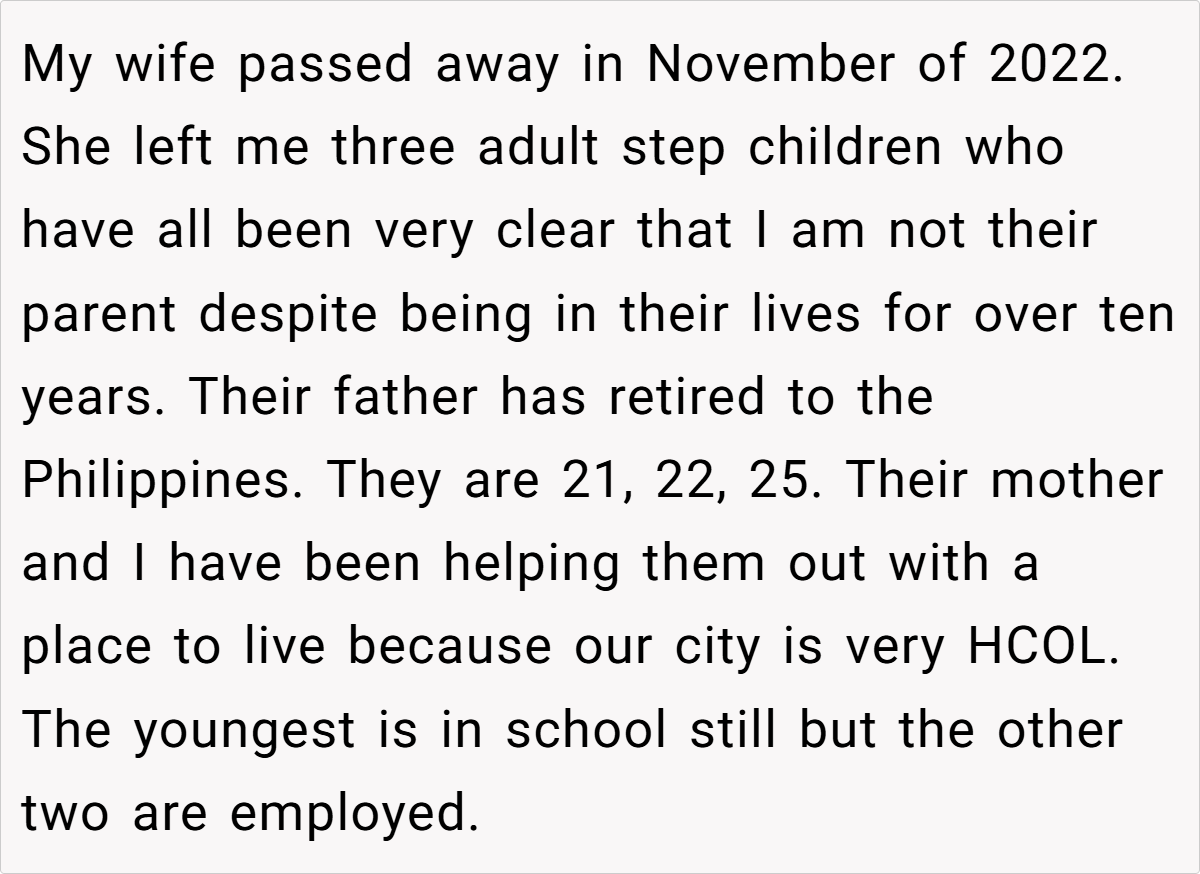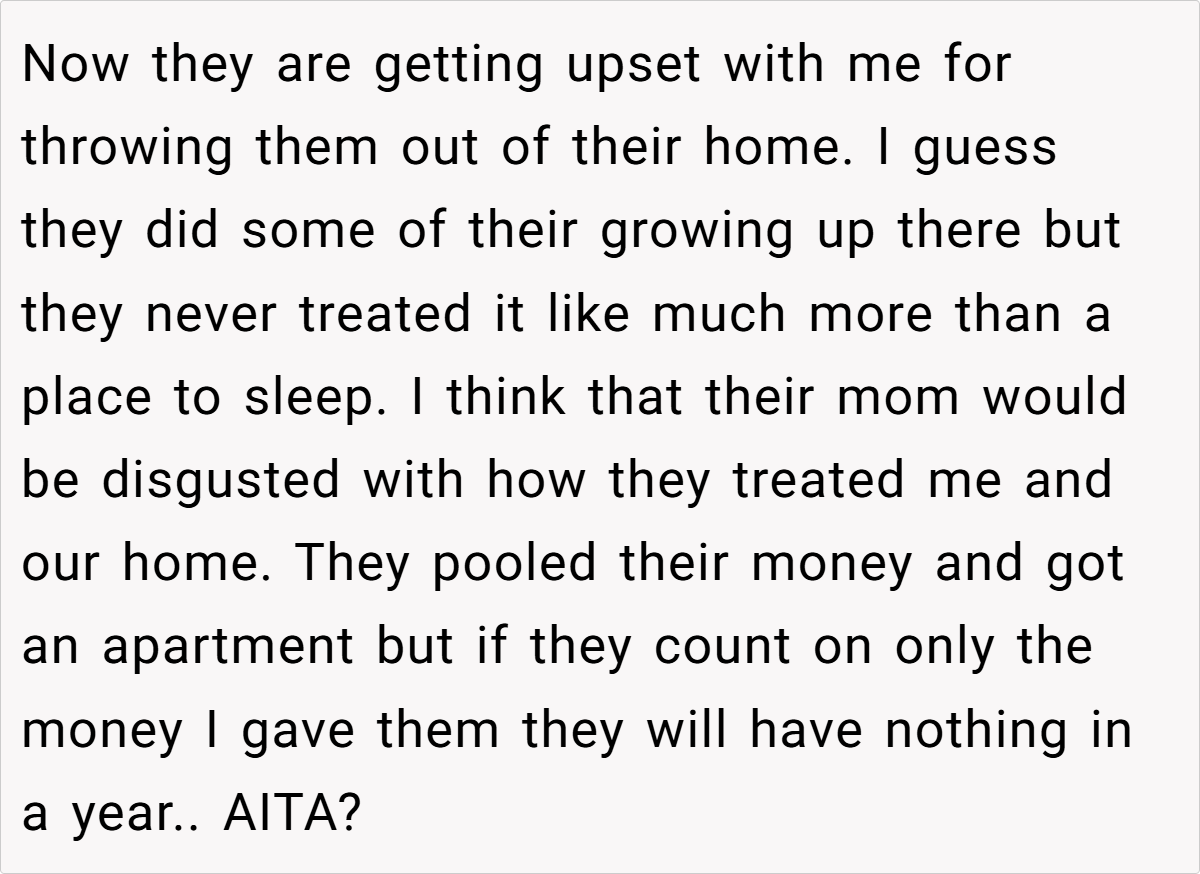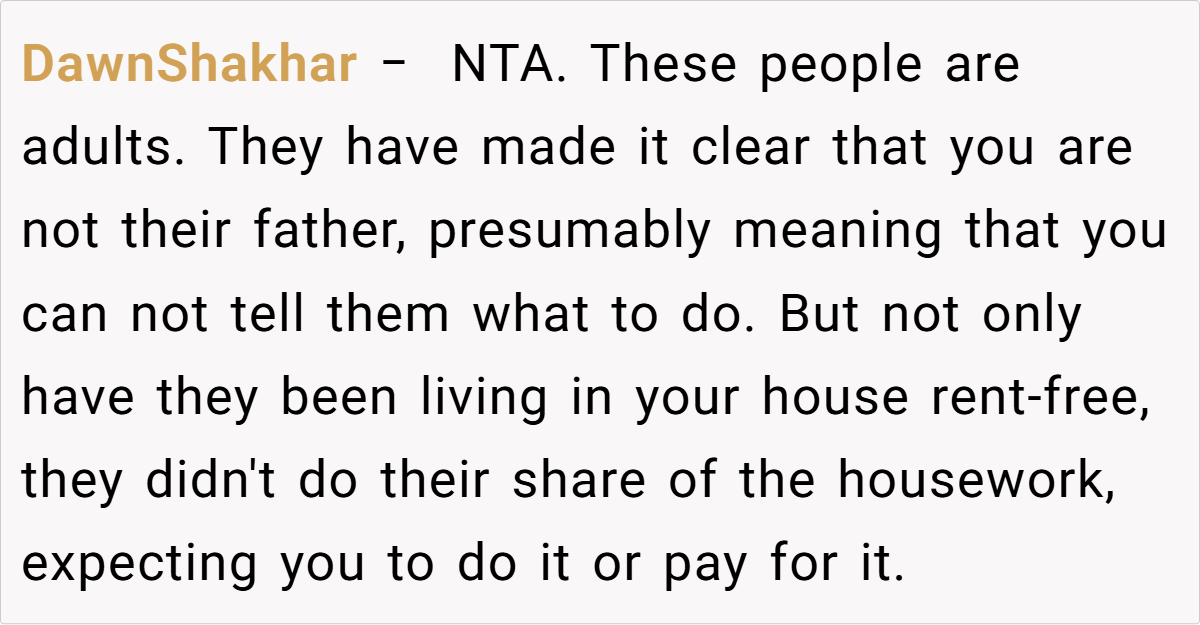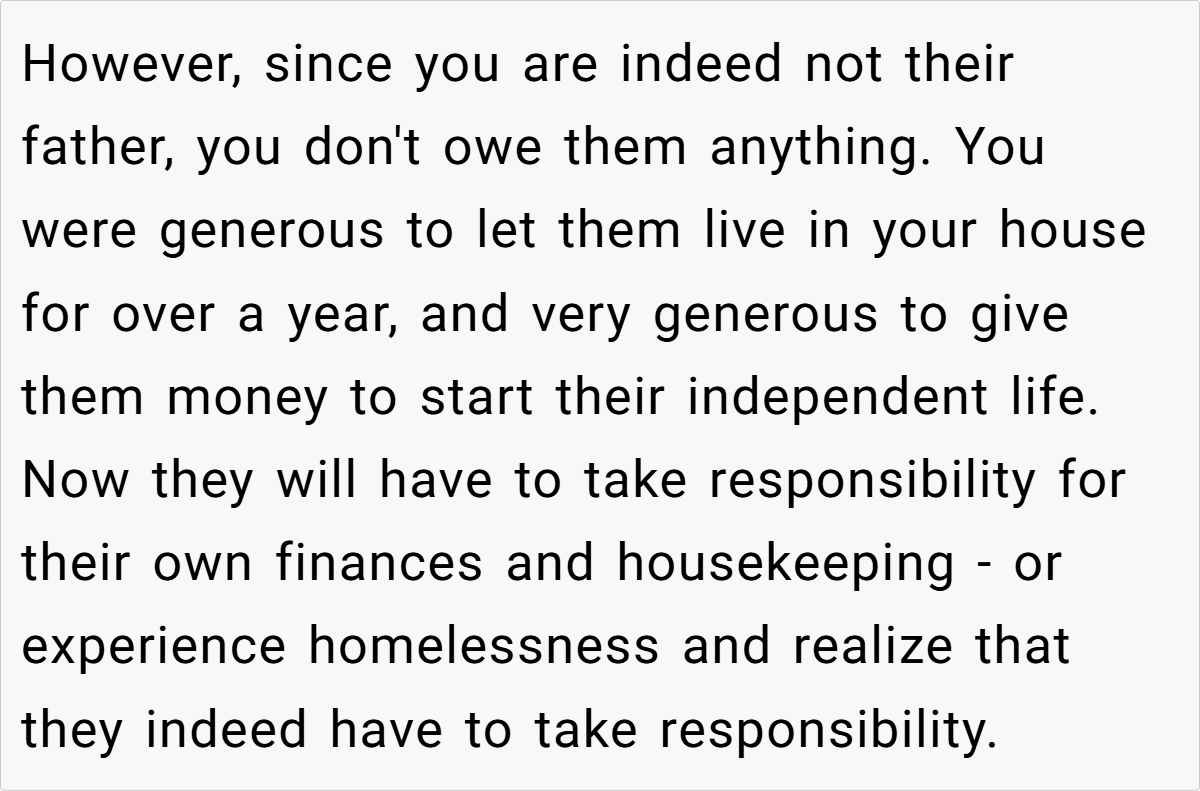AITAH for selling my house to get rid of my step children.

Navigating relationships with adult stepchildren can be complicated, especially when it comes to boundaries, expectations, and responsibilities. In this case, one Reddit user, a widower, found himself at a crossroads with his three stepchildren after the death of their mother. He had supported them for years, helping them live in a high-cost area without charging rent, even covering utilities and groceries.
But after their mother’s passing, the children stopped contributing to household chores or expenses, and the widower made the difficult decision to sell the home and move on. He generously gave each stepchild $10,000, but now they feel abandoned and upset. The question: Is he the a**hole for taking this step?

‘AITAH for selling my house to get rid of my step children.’




Navigating the delicate balance of supporting adult children, especially after the death of a spouse, can create complex emotional and financial tensions. In situations like this, the key issue often revolves around the boundaries of responsibility.
The expert consensus among family psychologists is that while it’s admirable for parents or stepparents to support their children, they must also foster independence. According to Dr. Jennifer Rose, a licensed family therapist, “It’s essential for young adults to experience the consequences of their actions, especially when they are fully capable of supporting themselves.”
The situation described here reflects this concept well. By providing $10,000 each, the widower ensured his stepchildren wouldn’t be left in financial ruin. Yet, by continuing to care for them without setting clear expectations for independence, he allowed them to remain in a state of dependency. This lack of accountability can breed resentment on both sides. The stepchildren might feel entitled to his continued support, while the widower likely feels unappreciated for his generosity.
Dr. Rose also emphasizes the importance of clear communication. “Setting boundaries with adult children, especially those who may not understand the full scope of their reliance on a stepparent, requires transparency. A clear discussion about future living arrangements and responsibilities can prevent misunderstandings and protect relationships.”
While this situation highlights a common challenge in blended families, it also reflects a broader societal issue: the difficulty many parents face in helping adult children transition into self-sufficiency.
Studies have shown that financial dependence on parents remains a significant issue, with approximately 40% of young adults living with their parents until their mid-20s (Pew Research Center). This is often exacerbated by high living costs and a lack of affordable housing, yet it also leads to challenges in independence and maturity.
In this case, the widower’s decision to sell the house and move on was a necessary step for his own well-being, as he must prioritize his future and happiness after a difficult loss. However, the stepchildren may struggle to accept the harsh reality that they are now responsible for their own lives. The expert advice here is clear: while generosity is admirable, fostering independence and setting boundaries is crucial to ensuring the well-being of both parties in the long term.
See what others had to share with OP:
Here are some hot takes from the Reddit community – candid and humorous:











As challenging as it can be to take such a decisive step, the widower’s actions may have been necessary for both his emotional well-being and the growth of his stepchildren. While it’s understandable for the stepchildren to feel upset, it’s important for them to recognize the generosity they’ve been given. Ultimately, adult children need to take responsibility for their own lives and financial independence, especially when they are given a clear opportunity to do so.
What do you think? If you were in the widower’s shoes, how would you handle the situation? Would you have given your stepchildren money, or would you have taken a different approach? Share your thoughts below!

